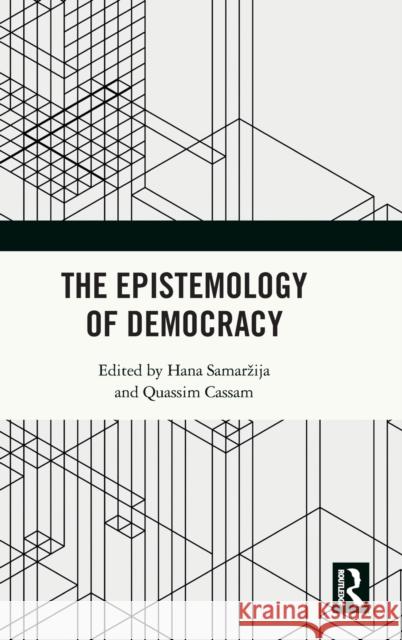The Epistemology of Democracy » książka
The Epistemology of Democracy
ISBN-13: 9781032317250 / Angielski / Twarda / 2023 / 220 str.
The Epistemology of Democracy
ISBN-13: 9781032317250 / Angielski / Twarda / 2023 / 220 str.
(netto: 650,37 VAT: 5%)
Najniższa cena z 30 dni: 628,93
ok. 16-18 dni roboczych.
Darmowa dostawa!
This is the first edited scholarly collection devoted solely to the epistemology of democracy. Its fifteen chapters, published here for the first time and written by an international team of leading researchers, will interest scholars and advanced students working in democratic theory, the harrowing crisis of democracy, political philosophy, social epistemology, and political epistemology.The volume is structured into three parts, each offering five chapters. The first part, Democratic Pessimism, covers the crisis of democracy, the rise of authoritarianism, public epistemic vices, misinformation and disinformation, civic ignorance, and the lacking quantitative case for democratic decision-making. The second part, Democratic Optimism, discusses the role of hope and positive emotions in rebuilding democracy, proposes solutions to myside bias, and criticizes dominant epistocratic approaches to forming political administrations. The third and final part, Democratic Realism, assesses whether we genuinely require emotional empathy to understand the perspectives of our political adversaries, discusses the democratic tension between mutual respect for others and a quest for social justice, and evaluates manifold top-down and bottom-up approaches to policy making.
This is the first edited scholarly collection devoted solely to the epistemology of democracy. Its fifteen chapters, published here for the first time and written by an international team of leading researchers, will interest scholars and advanced students working in democratic theory, the harrowing crisis of democracy, political philosophy, social epistemology, and political epistemology.
The volume is structured into three parts, each offering five chapters. The first part, Democratic Pessimism, covers the crisis of democracy, the rise of authoritarianism, public epistemic vices, misinformation and disinformation, civic ignorance, and the lacking quantitative case for democratic decision-making. The second part, Democratic Optimism, discusses the role of hope and positive emotions in rebuilding democracy, proposes solutions to myside bias, and criticizes dominant epistocratic approaches to forming political administrations. The third and final part, Democratic Realism, assesses whether we genuinely require emotional empathy to understand the perspectives of our political adversaries, discusses the democratic tension between mutual respect for others and a quest for social justice, and evaluates manifold top-down and bottom-up approaches to policy making.











